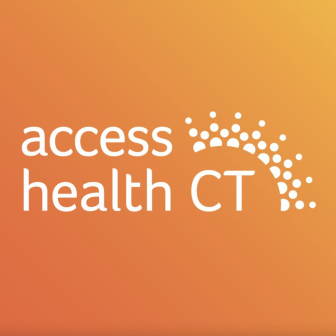Toll Technology, Revenue Considered in Indiana, Minnesota and (Possibly) Connecticut
/“Toll technology advancements significantly altered the tolling landscape, expanded the types of toll facilities being operated and improved customer experience,” a report on tolling feasibility developed for the Minnesota Department of Transportation explained. “New toll facilities using all-electronic tolling are being implemented in several places across the country to add new roadway capacity, manage congestion and provide a sustainable revenue source for asset lifecycle costs.”
The 106-page report, issued in January, concluded that more study is needed — if that’s the direction the state wants to take, the Minneapolis StarTribune reported. The StarTribune noted that “Minnesota doesn’t have the kind of toll-road system that is common on the East Coast and other regions of the country. The E-ZPass electronic toll system, for example, was first deployed in New York 25 years ago and now serves 17 states, stretching from Maine to Illinois to North Carolina.”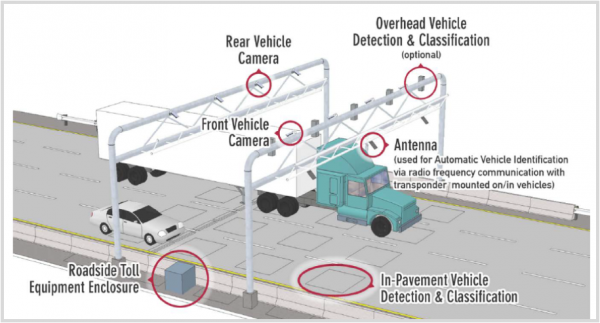
The MnDOT study, initiated at the legislature’s behest, cost $175,000 and recommended a follow-on in-depth study, anticipated to have a considerably larger price tag. The report stated that “results of the feasibility analysis are a high-level revenue assessment based on numerous assumptions and a more detailed study would be required before any decision is made to implement a specific toll project.” The report was prepared by four consultants – the Minneapolis offices of WSB and HNTV Corporation, and Prime Strategies, Inc. and Lock Lord LLP, both of Austin.
Indiana is also giving tolls a careful look, with the type of in-depth study recommended in Minnesota, and proposed by Connecticut Governor Dan Malloy, who signed an Executive Order authorizing a $10 million study. Malloy’s proposal is to be considered by the State Bond Commission later this week. “Without transforming the way the state funds its highways,” Malloy said recently, “we will be unable to pay for the large-scale construction and rehabilitation projects that our state needs to ensure continued safe travel while attracting businesses and growing our economy.”
In Indiana, a strategic plan that could clear the way for that state to add tolls to its interstate highways, including inside the I-465 loop in Indianapolis, is currently being developed by one of the companies utilized by Minnesota.
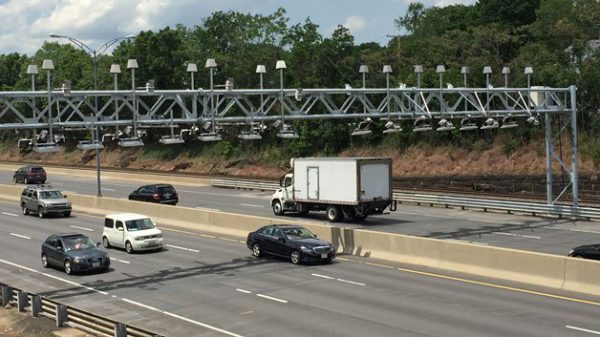 The Indianapolis Star reported earlier this summer that the state signed a $9.6 million contract with HNTB Indiana Inc. to study the impact of tolling and provide project planning if the state chooses to move forward with tolling. The administration of Gov. Eric Holcomb is required to study tolling under a road-funding plan lawmakers passed in 2017, but a decision has not been made on whether the state will go forward with authorizing a tolling plan, according to published reports.
The Indianapolis Star reported earlier this summer that the state signed a $9.6 million contract with HNTB Indiana Inc. to study the impact of tolling and provide project planning if the state chooses to move forward with tolling. The administration of Gov. Eric Holcomb is required to study tolling under a road-funding plan lawmakers passed in 2017, but a decision has not been made on whether the state will go forward with authorizing a tolling plan, according to published reports.
Under the law, Indiana’s Governor is permitted to draft a strategic plan "if the governor determines that tolling is the best means of achieving major interstate system improvements in Indiana." That decision has yet to be made.
"He wanted more information to make an informed decision and will use the strategic plan due Dec. 1 as a basis for that," a spokesman for the Governor told the Star. "If after reviewing the plan the governor determines that tolling is not the best option, the state won’t move forward with the remainder of the contract."
The contract with HNTB lays out specific requirements for the consultant if the state chooses to add tolling. For example, the Star reported, HNTB would be required to assist with project start-up for tolls in the Indianapolis Metropolitan Planning Area, which includes Indianapolis and portions of nearly all of the bordering counties.
In Iowa earlier this year, a state DOT report on tolls was received by political leaders with distain. In an editorial, The Gazette noted the possibility of tolls “is worthy of much more careful consideration than the political class is willing to grant.” The publication added “Political fecklessness will not solve Iowa’s mounting transportation funding problems. Iowans love driving, we have a lot of roads and somebody has to pay for them.”
“Many Iowans have noticed a pattern in state government, a repetitive cycle of studies, recommendations and inaction. That may serve politicians fixated on their next election, but it does little to solve the very real problems Iowans face.”
https://youtu.be/kQxCVcMUq1s
Video: Connecticut House Democrats
Graphics: 2018 Minnesota DOT Toll Study Report


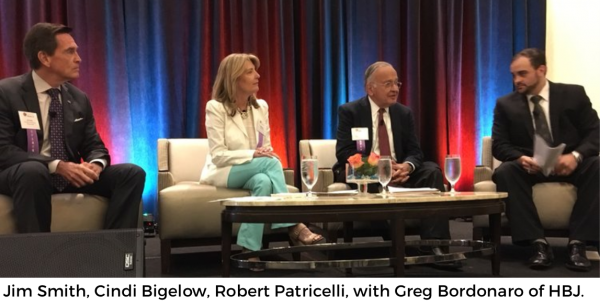
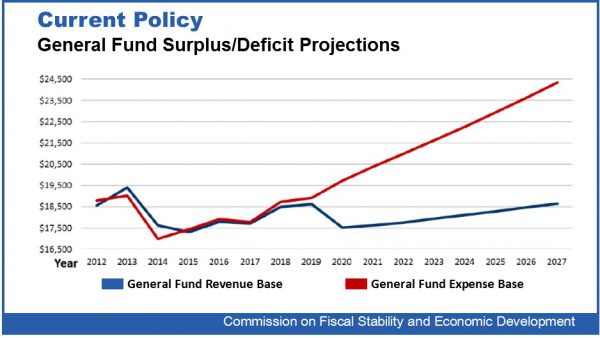 Smith and Robert Patricelli, former CEO & Founder of Women's Health USA, who co-chaired the panel, were featured along with Commission member Cindi Bigelow, CEO of Bigelow Tea, at an event coordinated by the Hartford Business Journal last week. It was one of nearly 100 forums, discussions and one-on-one meetings that the co-chairs and other commission members have had since their findings and recommendations were issued.
Smith and Robert Patricelli, former CEO & Founder of Women's Health USA, who co-chaired the panel, were featured along with Commission member Cindi Bigelow, CEO of Bigelow Tea, at an event coordinated by the Hartford Business Journal last week. It was one of nearly 100 forums, discussions and one-on-one meetings that the co-chairs and other commission members have had since their findings and recommendations were issued.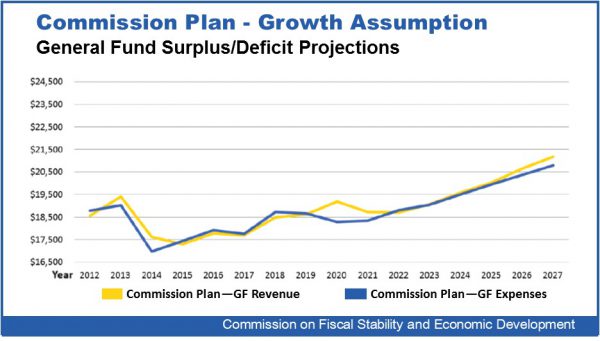
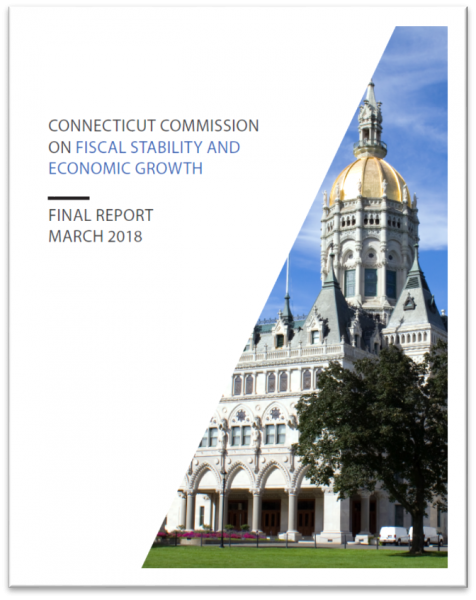 The co-chairs say it is understandable that more was not done with the Commission’s recommendations during the short 2018 legislative session, largely because an election was just around the corner. Instead, the legislature opted to have the Office of Policy and Management (OPM) coordinate two studies, soon to get underway. One would look at the Commission’s recommendations that involve “rebalancing of state taxes to better stimulate economic growth without raising net new taxes”; the other would conduct a study of the proposal for reform of the Teachers' Retirement System.
The co-chairs say it is understandable that more was not done with the Commission’s recommendations during the short 2018 legislative session, largely because an election was just around the corner. Instead, the legislature opted to have the Office of Policy and Management (OPM) coordinate two studies, soon to get underway. One would look at the Commission’s recommendations that involve “rebalancing of state taxes to better stimulate economic growth without raising net new taxes”; the other would conduct a study of the proposal for reform of the Teachers' Retirement System.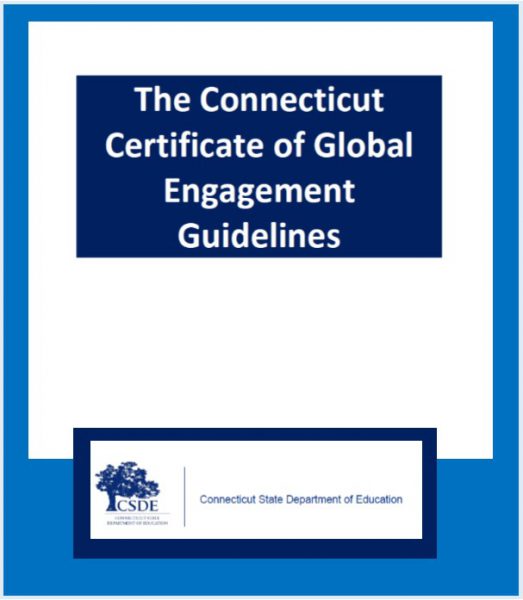
 by the Common Core Standards and provides a pathway for 21st Century Skills.
by the Common Core Standards and provides a pathway for 21st Century Skills.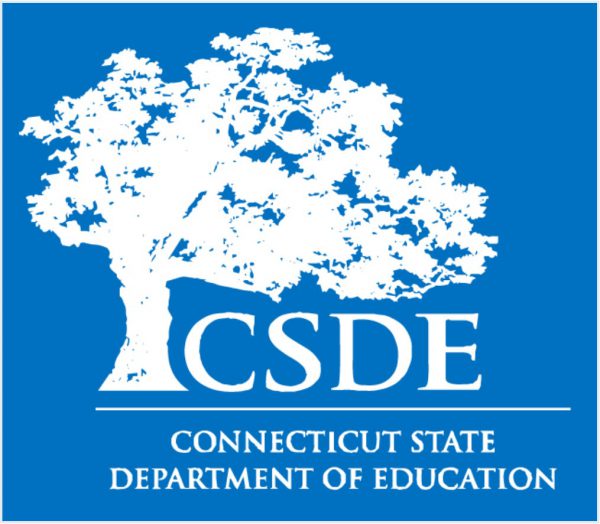 Globally-Focused Coursework would require at least 7.0 credits or demonstration of mastery and Globally-focused Student Activities would require competency in global citizenship through active participation in “at least one or more co-curricular and other school-sponsored or endorsed activities over at least 3 years of their high school experience with suggested involvement of a total of at least 15 hours.”
Globally-Focused Coursework would require at least 7.0 credits or demonstration of mastery and Globally-focused Student Activities would require competency in global citizenship through active participation in “at least one or more co-curricular and other school-sponsored or endorsed activities over at least 3 years of their high school experience with suggested involvement of a total of at least 15 hours.”

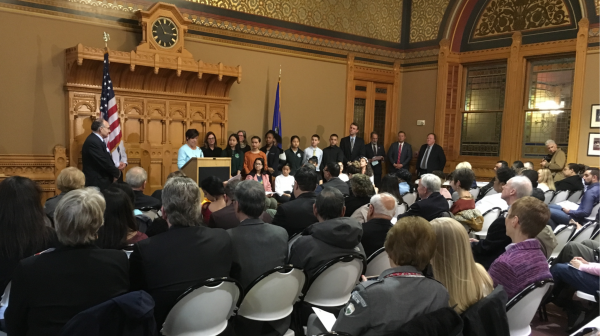
 Sixth-graders from the Interdistrict School for Arts and Communication in New London were recognized for their project, “Community Faces-Humanizing the Immigrant Label,” parts of which were on display at the Capitol. The second group was Teens4Citizenship, a Hartford Public Library and Hartford Public Schools collaborative program. As "Citizenship Guides," these high school immigrant students support family and community members on the path to Citizenship and upon turning 18 pursue their own citizenship.
Sixth-graders from the Interdistrict School for Arts and Communication in New London were recognized for their project, “Community Faces-Humanizing the Immigrant Label,” parts of which were on display at the Capitol. The second group was Teens4Citizenship, a Hartford Public Library and Hartford Public Schools collaborative program. As "Citizenship Guides," these high school immigrant students support family and community members on the path to Citizenship and upon turning 18 pursue their own citizenship. Instead of honoring Christopher Columbus, the Indigenous Peoples’ Day recognizes Native Americans, who were the first inhabitants of the land that later became the United States of America. Advocates for the switch to Indigenous Peoples Day argue that Columbus did not “discover” America in 1492 but instead began the colonization of it.
Instead of honoring Christopher Columbus, the Indigenous Peoples’ Day recognizes Native Americans, who were the first inhabitants of the land that later became the United States of America. Advocates for the switch to Indigenous Peoples Day argue that Columbus did not “discover” America in 1492 but instead began the colonization of it.




















